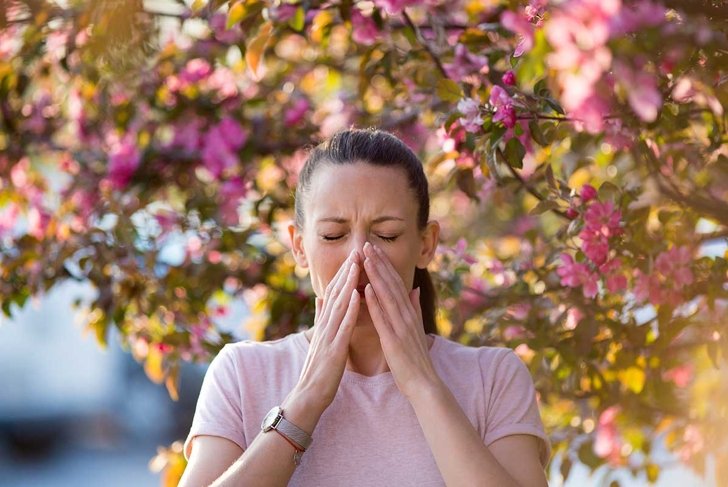
If you’re among the 20 percent of the general population who suffer from allergies, dealing with a runny nose, tickling throat, and red itchy eyes may be all too familiar. Most of the time, allergies stem from an oversensitive immune system reacting to “false alarms” in the environment, with triggers as simple as a dusty room or insect bite kicking it into high gear.
Thankfully, there are natural ways to reduce the impact of allergies on daily life, including these home remedies to relieve symptoms and eliminate common triggers.
01
Probiotics

Your microbiome, including the good bacteria in your gut, skin, and airways, plays a major role in your immune function—such as your response to allergens. Allergies are on the rise, partly due to our changing lifestyles and its effect on our microbiomes. Eating probiotic-rich foods daily, such as natural yogurt, kimchi, and other fermented foods, along with prebiotic fiber from unrefined grains, is a simple and delicious way to re-establish a healthy microbiome.
02
Quercetin
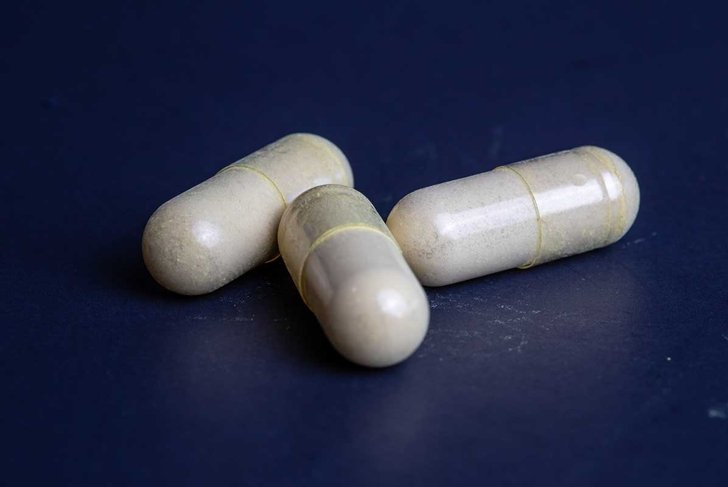
Population studies hint at the importance of eating foods rich in flavonoids, such as quercetin, to prevent asthma and allergies. This antioxidant pigment, found at especially high levels in onions, shallots, and apples, works as a natural antihistamine by inhibiting the body’s release of histamines during a reaction. Supplementation with quercetin has also been found to improve symptoms of rhinitis and reduce allergy sufferers’ reliance on conventional treatments like nasal drops and inhalers.
03
Saline rinse
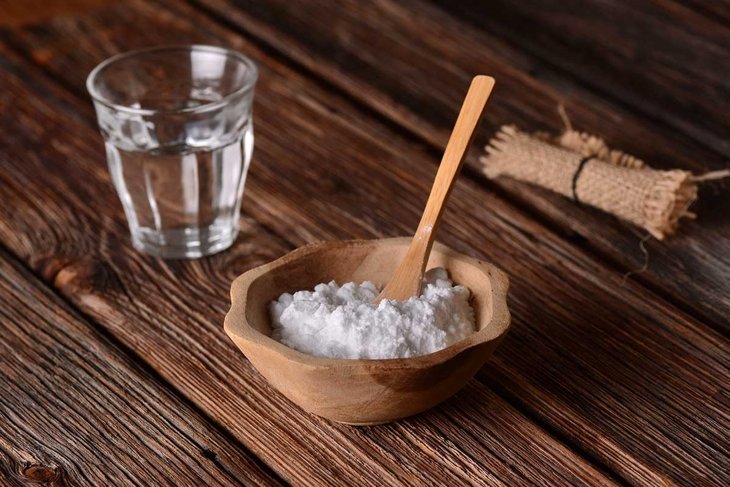
Rinsing your nose with a saline solution can work wonders for relieving symptoms of hay fever and other sinus problems. When done correctly, rinsing helps clean out pollen and other allergens that have gotten stuck in your nostrils and sinuses, while also helping to remove excess mucus. Making your own rinse solution is as simple as combining:
- 3/4 tsp (4 mL) iodide-free salt
- 1/4 tsp (1 mL) baking soda
- 1 cup (250 mL) lukewarm distilled or sterilized water
04
Butterbur
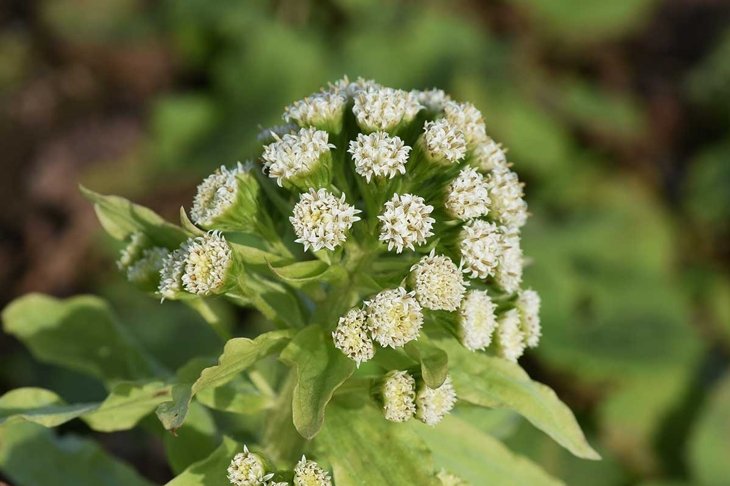
Butterbur is one of the few plant-based remedies that is scientifically accepted for preventing allergies. Thanks to its antioxidant profile and a unique compound called petatewalide B, this traditional Korean, Japanese, and Chinese medicine has anti-inflammatory and anti-allergic activities that have made it a go-to remedy for seasonal allergies and bronchial asthma. Butterbur is commonly taken as a natural supplement made from its leaves, buds, roots, and stems.
05
Essential oils

Aromatic plant oils can stimulate the nervous, circulatory, and hormonal systems to unlock the body’s own wellness-enhancing activities. Using a home vaporizer or a carrier oil for direct application to skin, eucalyptus, peppermint, and tea tree oils are top choices for relieving congested and inflamed mucus membranes, coughs, and sinusitis. One study also found that inhaling a blend of sandalwood, geranium, and ravensara oils twice per day reduced allergic rhinitis symptoms.
06
Mushrooms
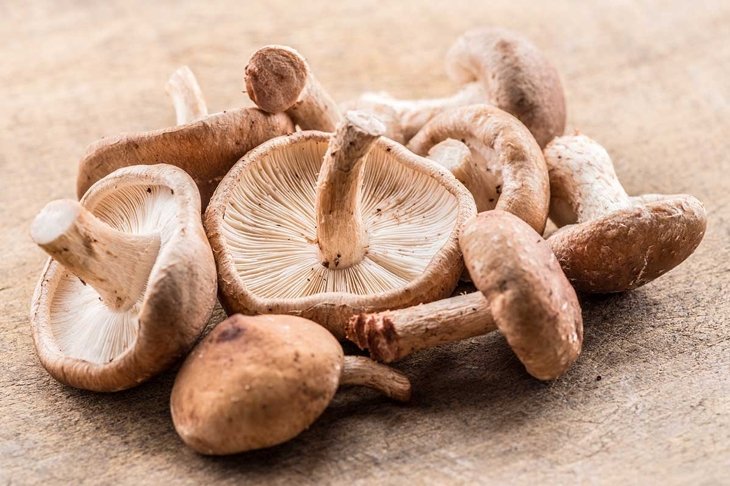
Called “food of the gods” by Ancient Romans, mushrooms contain special dietary fibers called beta-glucans. Beta-glucans are powerful activators of the immune system and have been found to help people with ragweed allergies reduce the severity of their symptoms by 52 percent when taken as a supplement. Adding more mushrooms, especially shiitake, reishi, oyster mushroom, and huitlacoche, to your daily meals can also increase your intake of beta-glucans.
07
A cup of tea

Allergy relief may be as simple as a cup of tea. Rooibos, a caffeine-free herbal tea with high mineral and antioxidant levels, has bronchodilator effects that widen the airways and has been found to reduce allergic inflammation in allergy patients. The Benifuuki variety of green tea, recognized for its exceptional epigallocatechin-3-gallate (EGCG) levels, has also been shown to relieve runny nose and itchy eye symptoms in people with cedar pollen allergies.
08
Propolis and pollen

People have been harnessing the medicinal power of honeybees for centuries. Propolis, also called “bee glue,” and bee pollen are natural sources of vitamins, minerals, and flavonoids with antioxidant, anti-inflammatory, and immune-stimulating activities. Although more research is needed, studies show that propolis may help suppress allergic inflammation from food allergies. Anti-allergic compounds have also been found in bee pollen. The catch is that bee products should not be used by people with bee or pollen allergies.
09
Air purification
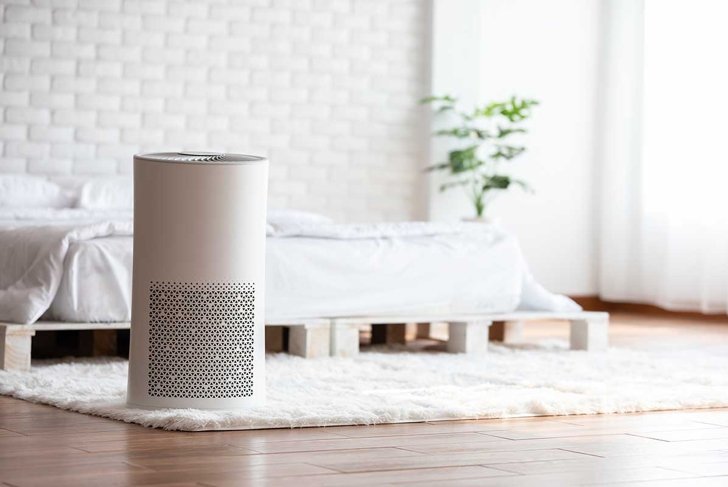
Dust mites, mold spores, smoke, and other common household particulates spell big trouble for allergy sufferers. By trapping airborne particles, air purifiers can help lower your exposure to allergy triggers in your home and workplace. One study found that people with allergic rhinitis who ran an air purifier at home used 26 percent less allergy medication.
10
Allergy-smart habits

Prevent allergens from becoming a nuisance by incorporating allergy-smart habits into your lifestyle. Practice ways to reduce stress, such as regular meditation, yoga, and focused breathing to help prevent stress-related allergy flare-ups. Washing pillowcases and linen in hot water weekly, keeping dust-collecting clutter to a minimum, and shampooing your hair and changing clothes after outdoor activities will also reduce allergen levels in your home.



